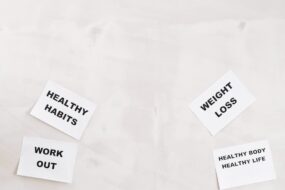
Building Resilience
Understanding Resilience
Resilience is all about bouncing back when life knocks you down. It’s like a mental spring that helps people pull through tough times, stress, or that unexpected curveball life throws at you. When someone’s got a good dose of resilience, they seem to handle life’s ups and downs a lot better, keeping their heads cool and their spirits high. It’s about grabbing the wheel and steering back on track when you’ve veered off course. If you’re keen on finding out more about getting a grip on your resilience, maybe take a peek at stories on morning routines and the art of mindfulness.
Components of Resilience
Figuring out what makes resilience tick can give you a hand in building this handy trait. Let’s break it down:
-
Adaptability: People with resilience are like shape-shifters. They’re cool with shaking things up and trying new stuff, which helps them handle stress and life’s roller coasters better (Positive Psychology).
-
Healthy Perspective: Seeing life’s setbacks as a chance to learn instead of a roadblock makes a world of difference. This outlook helps folks toughen up, even when the going gets rough (Positive Psychology).
-
Confidence: Think of confidence as the backbone of resilience. When it wavers, focusing on what’s worked before and owning your strengths can boost your self-belief.
-
Commitment and Control: Sticking to tasks like a dog with a bone and feeling like you’re in the driver’s seat in your life plays a big part in resilience. Being game for a challenge also thickens the skin (Positive Psychology).
-
Growth and Purpose: The resilient bunch often finds new meaning after a big shake-up, growing stronger and discovering fresh purpose. This newfound grit can toughen them up, come what may.
If you’re on the hunt to build up your resilience, try weaving these elements into your everyday goings-on. Digging into readings on how to build better habits or conquer life’s challenges can shed some more light on boosting resilience and rolling with life’s punches.
Importance of Self-Assessment
Self-assessment is your secret weapon for personal growth, helping you clear those pesky hurdles like a champ. For those always pushing for more, it’s gold—whether fine-tuning habits, perfecting that morning jump-start, or another life tweak.
Self-Assessment in Learning
Nailing self-assessment is a game-changer in learning. It’s about spotting where you shine and where the wheels might wobble. Sometimes, though, school stuff can throw a wrench in this, like reading troubles (Psychological Science in the Public Interest). Here’s a bunch of tricks to sharpen your self-checking skills:
- Load up on “just hard enough” challenges
- Quiz yourself to nail down reading
- See where you stood against your last big win
- Let friends keep you in check
These moves make you a better learner and help you face whatever life hurls your way, be it packing for a crazy trip or hitting blog goals.
Enhancing Self-Awareness
Boosting self-awareness is your ace in the hole for handling life’s and work’s twists and turns. Messed-up self-judgment at work? Try throwing in safety nets, padding time, and asking pals what they really think.
- Safety Nets and Extra Time: Have these handy to stop that risky swagger and sharpen how you see yourself.
- Being Softball Aware: Keep those eyes peeled for hints from around you. They keep stuff real.
- What Do Others Think?: Give the friends and mentors a shout. They see stuff you might miss and help you grow.
These tactics are your toolkit for tackling new things, cracking into fresh markets, or making big calls like company grabs (Psychological Science in the Public Interest). Keep your self-assessment tuned, and you’ll breeze through everything from shaking off challenges to setting killer morning habits.
Bettering self-checks and self-know-how is key for folks leveling up—whether in getting your hangout gear just right, hunting down that perfect productivity hack, or whatever else life throws your way.
Cognitive Ability Testing
Cognitive ability tests play a big role in spotting and tackling the puzzles in our minds and lives. They measure our mental powers, giving a peek into what a person might achieve.
Predicting Job Performance
These tests are famous for giving a sneak peek into how someone might perform at work. Measuring smarts, aptitudes, and the everyday tricks needed for mentally demanding jobs, they are as valuable as ever in helping bosses find folks with the right mental toolkit in today’s ever-shifting job market.
| Cognitive Skill | Measurement Area |
|---|---|
| Verbal Analogy | Gets the brain clicking about how words buddy up or play off against each other |
| Number Series | Spotting number patterns and carrying the torch of numbers forward |
| Abstract Reasoning | Finding and matching patterns in pictures, solving puzzles visually |
| Deductive Reasoning | Using known stuff to crack the code on unknown stuff logically |
| Numerical Reasoning | Crunching numbers and pulling out what’s important from the data pile |
Data plays in from JobTestPrep
These tests give candidates a wild ride through problem-solving and quick-thinking challenges, letting employers gauge an overall sense of a person’s cognitive toolkit. This peek becomes all-important when matching candidates to jobs needing high-level brain gymnastics.
For the curious about how cognitive tests join forces with setting goals and forming habits, check our spot on building habits test.
Cognitive Skills Assessment
Taking a crack at cognitive skills means diving into a buffet of mental exercises. These skills stretch wider than just peeking into the future, covering the likes of abstract daydreaming, piecing together the jigsaw puzzle of logic, inventively tackling problems, and doing the math dance with relevant numbers.
Cognitive tests roll up to size up various brainy talents:
- Abstract Thinking: Grabbing hold of complex ideas and giving them a swirl.
- Deductive and Inductive Reasoning: Logical thinking for piecing together clues and drawing new maps.
- Creative Problem-Solving: Innovatively facing each hurdle with a fresh perspective.
- Numerical Reasoning: Breaks down and gobbles up the language of numbers, vital in fields like finance and engineering.
These tests paint a complete picture of someone’s mental flexibility, out-of-the-box thinking, and logical prowess.
To scoop up more on self-checking and beefing up personal growth, check out our guide on self-assessment in learning.
Nailing this approach to cognitive ability testing can prove to be a precious compass in steering personal and career success. It helps reveal your shining points and corners needing polish, guiding you down the path of triumph. For tips on tuning up your cognitive skills, kick back in our sections on morning routines test and mindfulness tips test.
Benefits of Inclusive Hiring
Inclusivity in Recruitment
Inclusive hiring is about more than just meeting quotas. It’s about creating a welcoming environment where everyone feels they belong. By taking these steps, companies ensure fair treatment and equal access for all applicants, regardless of their background or identity.
Unconscious biases often sneak in when we least expect them. These are stereotypes we form without realizing it and can affect who gets hired based on similarities to ourselves. To tackle this, inclusive interview methods aim to level the playing field. Whatever your gender, race, age, or ability, you deserve a fair shot.
Advantages of Diverse Workforce
What do you get when you mix different minds together? A whole lot of awesome benefits:
- Increased Innovation: Get ready for some creative sparks to fly. Different viewpoints mean fresh ideas.
- Better Retention Rates: When people feel like they fit in, they stick around. Goodbye high turnover!
- Enhanced Financial Performance: Companies rocking high diversity show impressive profits.
- Improved Talent Acquisition: A reputation for inclusivity draws in top-notch candidates from all walks of life.
| Benefit | Impact |
|---|---|
| Innovation | Fresh ideas spring from varied perspectives. |
| Retention Rates | Happiness at work keeps folks from jumping ship. |
| Financial Performance | Diversity often means better financial results. |
| Talent Acquisition | Diverse and inclusive cultures pull in top talent. |
For those looking to shake things up within their company, embracing inclusive hiring practices is a genius move. It helps you tackle bias and inequality head-on. Curious about boosting inclusivity at your place? Dive into resources like overcoming unconscious bias and mindfulness tips to get started.
Time to make inclusivity a living part of your hiring process—your team will thank you, and so will your bottom line!
Psychology of Decision-Making
Making choices is like the secret sauce for handling life’s obstacles, stepping up productivity, and leveling up personal growth. Understanding what goes on in our noggin when we’re deciding can really ramp up our skill in sidestepping hurdles and grabbing those life goals by the horns.
Unrealistic Optimism
Unrealistic optimism? Yeah, it’s kind of tricking ourselves into thinking everything’s gonna go our way and forgetting stuff can go south too. This mind-bender can get us all hyped-up, pushing us to take chances we might not normally take.
Why do we fall for this?
- Lack of Info: Ever made a decision without all the facts? Easy to predict a rosy future this way (Psychological Science in the Public Interest).
- Emotions on the Fritz: If we read our own feelings wrong, our choices go haywire.
- Ignoring Options: Not thinking about other ways things could pan out can muddy our judgment.
- Zooming in on Little Things: Fixating on small deets and missing the bigger picture can lead us astray.
To dial this back a bit, it’s key to size up every situation, recognize when our feelings are fooling us, and think about all the ways stuff might go down.
Factors Influencing Decision-Making
There’s a bunch of stuff that tweaks how we make choices.
-
Brainpower: It ain’t just about guessing what’s next. It’s super helpful to have your ducks in a row and to know when and how to make your move.
-
Smart Learning: Picking up new stuff quick and getting complex ideas can make decision-making way easier.
-
Team Dynamics: In a team game with multiple brains in action, you gotta juggle the unknowns about what others might do.
-
What’s Next?: The future’s still cooking, with new info and actions popping up all the time. Being prepared with some smart thinking helps big time.
Getting the hang of these can supercharge how you make choices. If you’re looking to learn how to roll with the punches and get more done, check out our tips on overcoming challenges test and productivity apps test.
| Thingamajig | How It Messes With Decision-Making |
|---|---|
| No Info | Tricks you into unrealistic hopes |
| Emotional Mix-Ups | Messes up choices if feelings go wonky |
| Weighing All Options | Cuts out bias by considering all outcomes |
| Brainpower | Helps get your stuff together and grasp tricky concepts |
| Team Players | Adds mystery to guessing what’s next |
| Future Surprises | New things keep flipping decisions |
Being clued in about these can help in getting better at making calls and managing curveballs.
For extra tidbits and resources on building nifty habits and boosting personal growth, pop by our articles on building habits test, backpacking guides test, and blogging milestones test.
Academic Resilience and Self-Efficacy
Impact of Parenting Style
The way parents raise their kids shapes how resilient they become academically. From what the research shows, parenting directly impacts a child’s ability to bounce back from academic challenges. Influential theories like Baumrind’s Parenting Styles, Attachment Theory, Social Learning, and Parental Acceptance-Rejection shed light on this. These theories all agree on one thing: adapting parenting techniques as kids grow is crucial to providing the support they need to build resilience.
| Theory | Key Focus |
|---|---|
| Baumrind’s Parenting Styles | How different styles affect child development |
| Attachment Theory | Importance of forming secure bonds early on |
| Social Learning Theory | How watching others helps kids learn behaviors |
| Parental Acceptance-Rejection Theory | Effects of warmth and rejection from parents |
Self-efficacy comes into play as a vital piece in this puzzle. Picture it as the confidence boost kids get that helps them smash academic goals. When parents use effective parenting styles, a child’s self-belief rockets, boosting their academic resilience. If you’re curious about resilience in other areas, take a look at our article on habits.
Academic Motivation and Resilience
What gets a student out of bed eager to learn? Motivation. It’s what makes students excel and manage academic stress like pros. Motivated students usually shine in their studies and recover quickly from setbacks.
| Factor | Relationship to Resilience |
|---|---|
| Self-Efficacy | Fuels kids’ confidence in their own smarts |
| Academic Motivation | Directly affects how well they digest info and deal with school stress |
| Parenting Style | Sets the groundwork for resilience with the right strategies |
There’s a strong link between parenting style, self-efficacy, motivation, and resilience (PMC). In short, supportive parenting can rev up a child’s belief in themselves and their drive, leading to rock-solid resilience in their studies. Check out our article on how to face academic hurdles for more strategies.
















